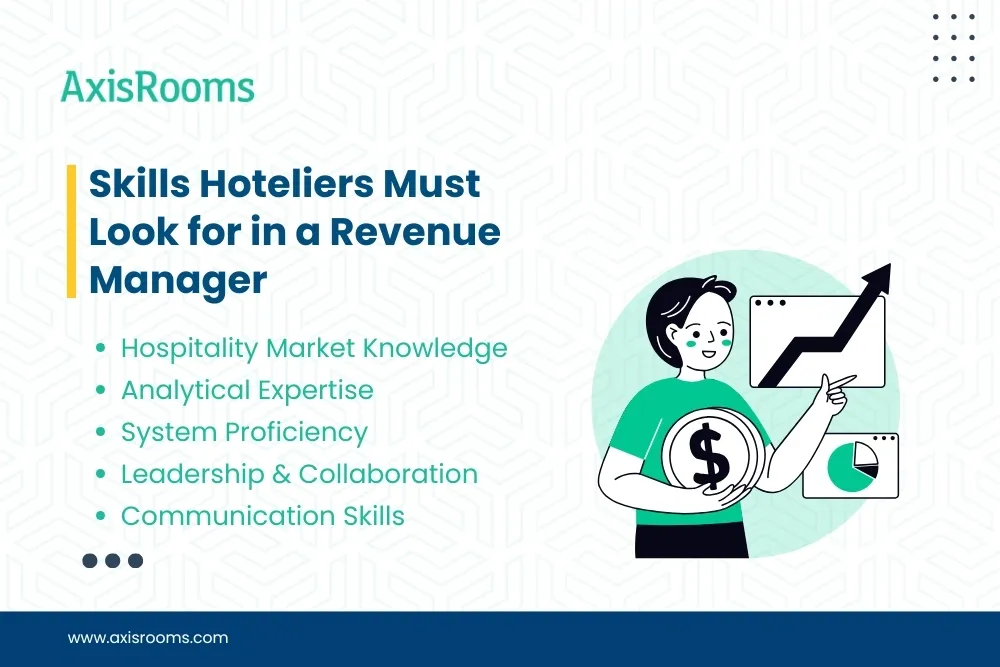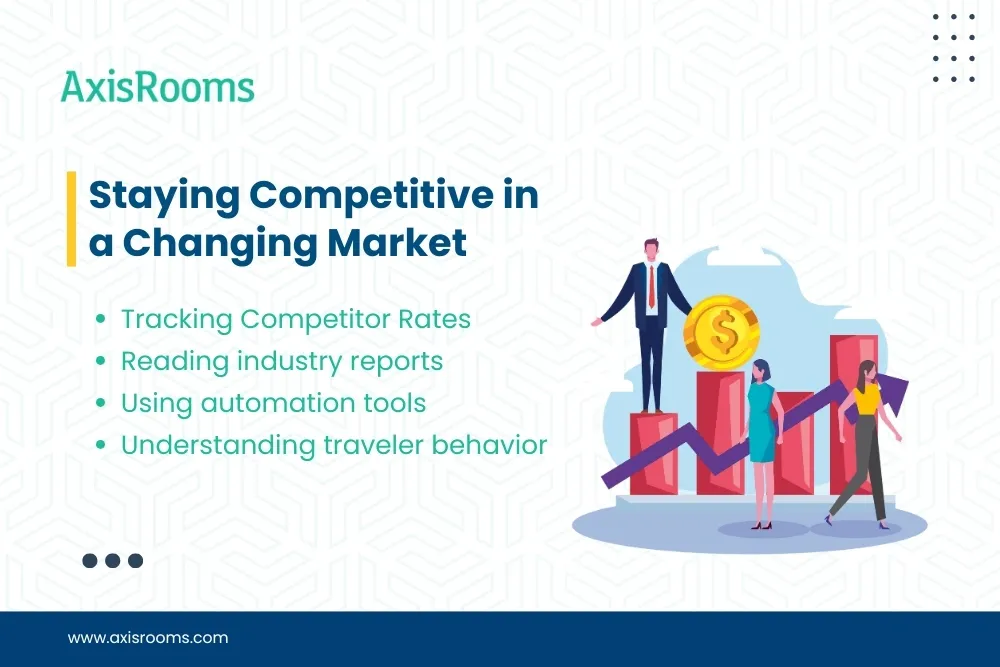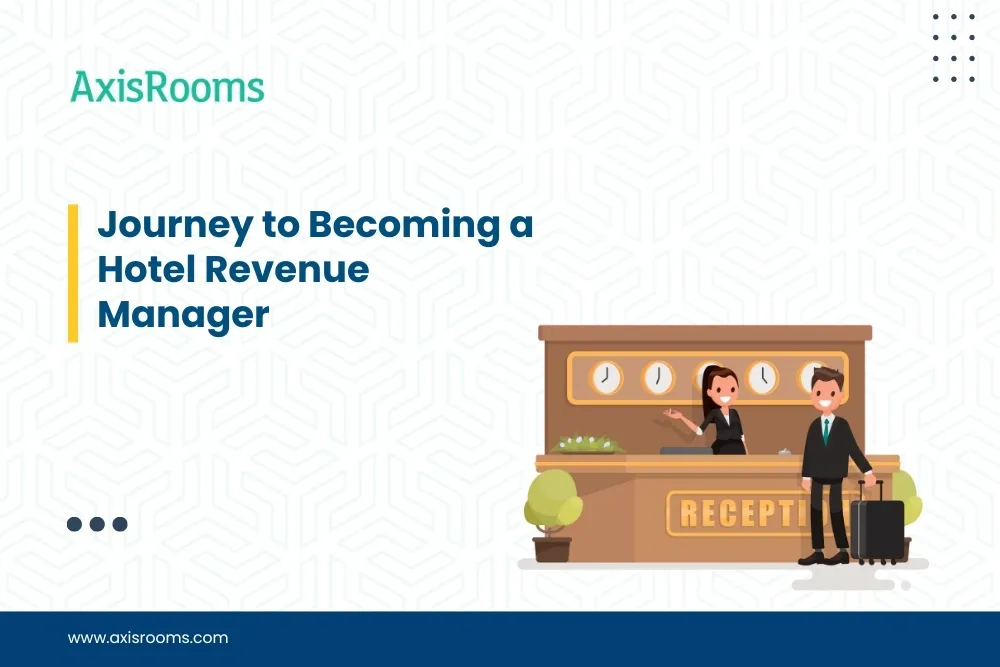In the hotel business, every unsold room is revenue lost forever.
That’s where a Hotel Revenue Manager steps in — the strategic mind behind setting the right room rates, optimizing distribution, and ensuring every room adds to the bottom line. With the rise of dynamic pricing, OTAs, and direct booking campaigns, revenue management is no longer optional — it’s essential.
Whether you're an aspiring hotelier or a front office executive aiming for growth, here’s how you build a career as a successful revenue manager in today’s evolving hospitality landscape.
Who is a Hotel Revenue Manager?
A Hotel Revenue Manager is responsible for using data and systems to maximize revenue per available room (RevPAR) by adjusting room rates, managing inventory, and optimizing channel mix. Unlike a sales manager who brings business in, a revenue manager ensures that business is priced right and profitably distributed.
According to recent market data, room demand is set to reach an all-time high, with projections showing a 2.5% global increase in 2024. This unprecedented demand creates both challenges and opportunities for revenue managers who know how to capitalize on market shifts.
Core Responsibilities in a Hotel Environment
Here’s what day-to-day responsibilities look like for a revenue manager in a mid-sized to large hotel:
Skills Hoteliers Must Look for in a Revenue Manager

A hotel revenue manager’s success depends not just on number-crunching, but on industry context, tech fluency, and market intuition.
Essential Skills for Hotel Revenue Management:
- Hospitality Market Knowledge: Understand seasonality, local demand drivers (festivals, conferences), and guest segments.
- Analytical Expertise: Ability to spot booking trends, cancellations, pickup pace, and overbooking opportunities.
- System Proficiency: Familiar with PMS, channel manager, RMS, and GDS tools.
- Leadership & Collaboration: Can align with operations, front office, and digital marketing teams.
- Communication Skills: Able to present rate strategies and defend forecasts to the management team.
Career Path: From Front Office to Revenue Management
Here’s how many hoteliers transition into revenue management roles:
Tip: Front desk staff with strong Excel and system skills often make excellent revenue executives.
Education & Technical Know-How
While a degree in Hospitality Management is ideal, additional skills in statistics, data analysis, or operations research will give you an edge. Internships or stints in hotel sales/reservations provide practical exposure.
You should be comfortable with:
- Excel (pivot tables, forecasting functions)
- Property Management Systems (e.g., IDS, Opera, Hotelogix)
- Revenue Management Software (RMS)
- Channel Managers and web booking engines
- OTA extranets (e.g., Expedia, Booking.com)
- PMS Integrations that streamline rate and inventory updates across platforms
Staying Competitive in a Changing Market

The hospitality industry today is shaped by volatile demand, rising competition, and tech-driven distribution. A successful revenue manager keeps up by:
- Tracking Competitor Rates using benchmarking tools
- Reading industry reports like STR and Hotel Market Data insights
- Using automation tools to respond to demand shifts faster
- Understanding traveler behavior across direct, OTA, and corporate channels
Role of Technology in Revenue Management
Revenue managers no longer work with spreadsheets alone. Tools like AxisRooms Revenue Management System (RMS) automate and simplify major tasks:
AxisRooms RMS is designed specifically for hotel revenue managers in India and emerging markets — offering affordability, scalability, and actionable insights.
Why Revenue Management is a Game-Changer for Hotels
- 10–20% increase in RevPAR
- Better forecast accuracy
- Higher direct bookings via web booking engine
- Improved profitability even during low seasons
A comprehensive study of 567 hotels across nine countries including Australia, the United States, and the United Kingdom found that properties implementing advanced revenue management systems experienced an average revenue increase of 19%. Why burden hotel staff with tasks that are repetitive, mundane and most of all, demanding, when you can streamline all of it with automation.
Final Thoughts: Are You Ready to Step into the Role?
Becoming a successful hotel revenue manager isn’t about learning formulas — it’s about thinking like a hotelier with a strategist’s mindset. You’ll work at the intersection of operations, technology, and finance — ensuring your property thrives in any market condition.
Whether you're managing a 50-room boutique hotel or a 5-property chain, revenue management is your pathway to higher profits, better guest segmentation, and smarter pricing.




